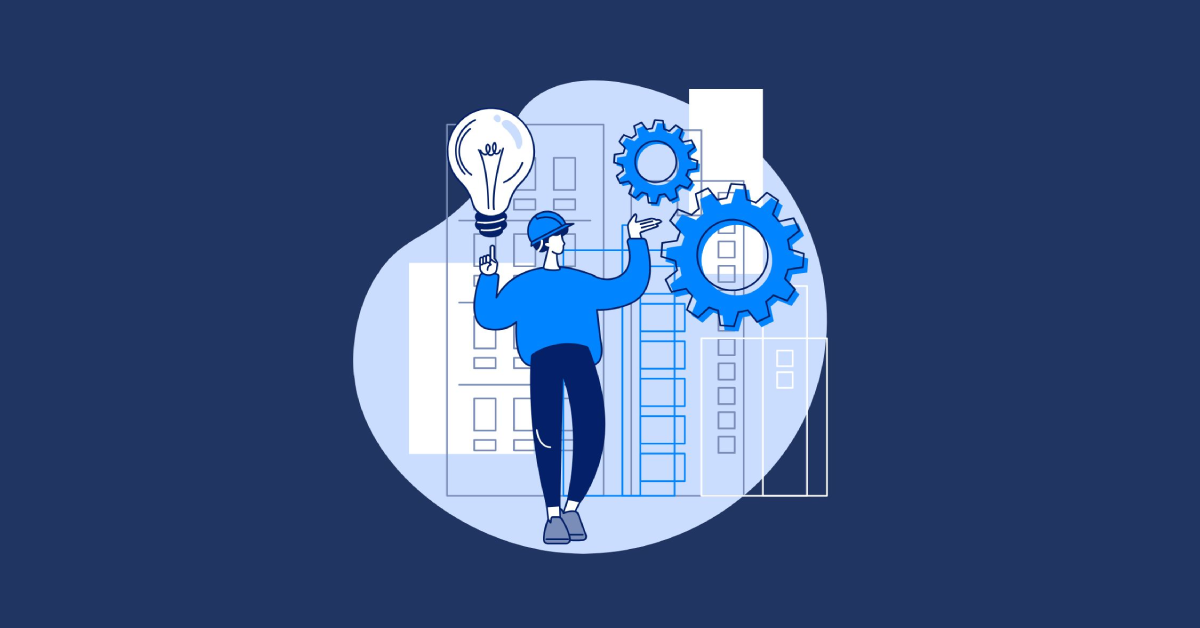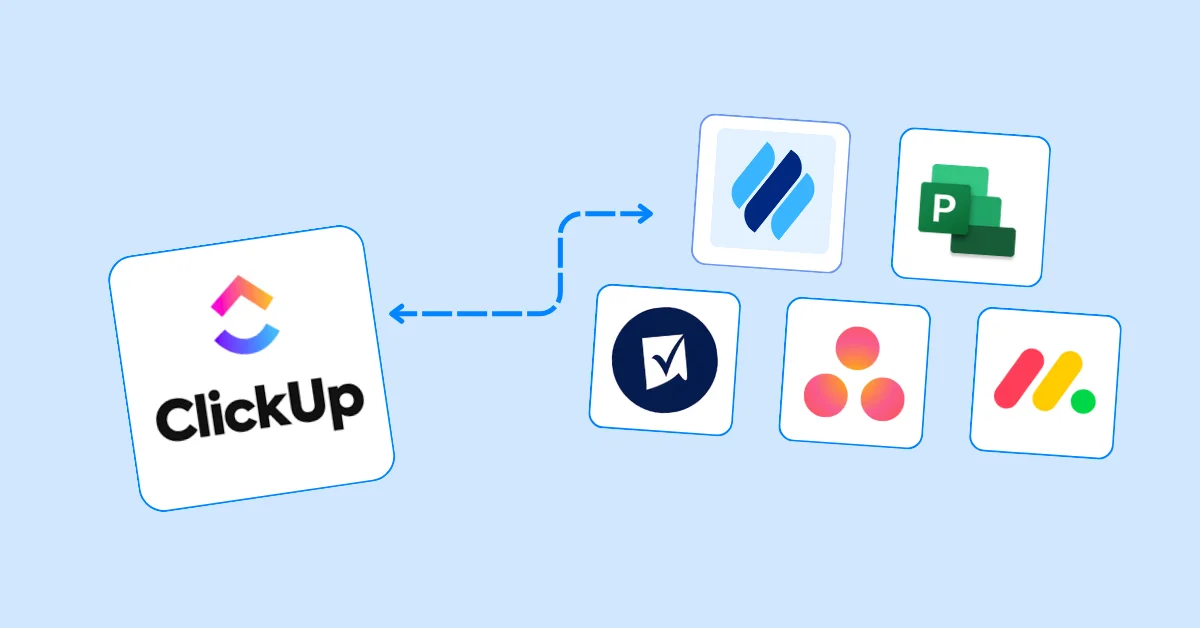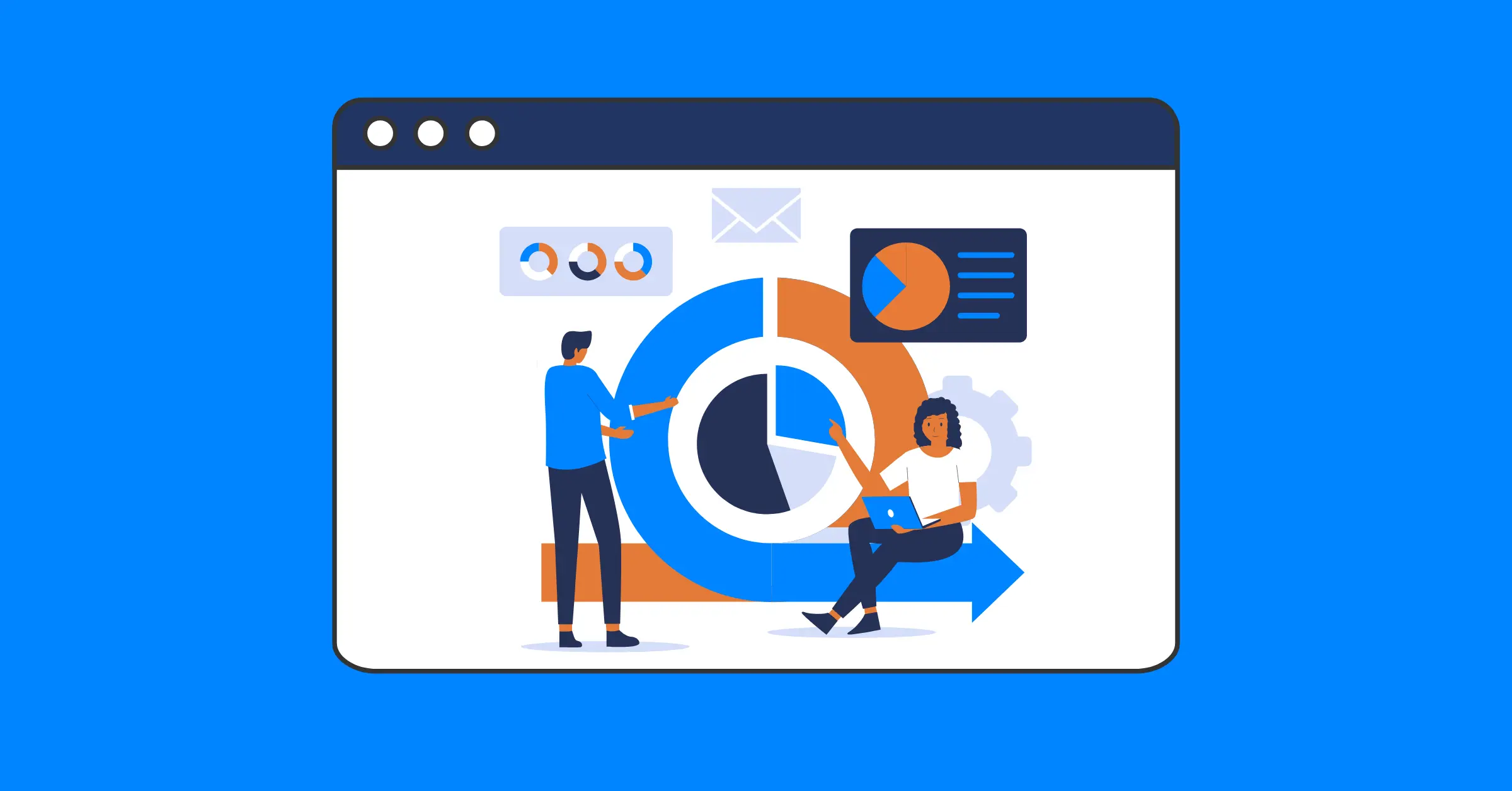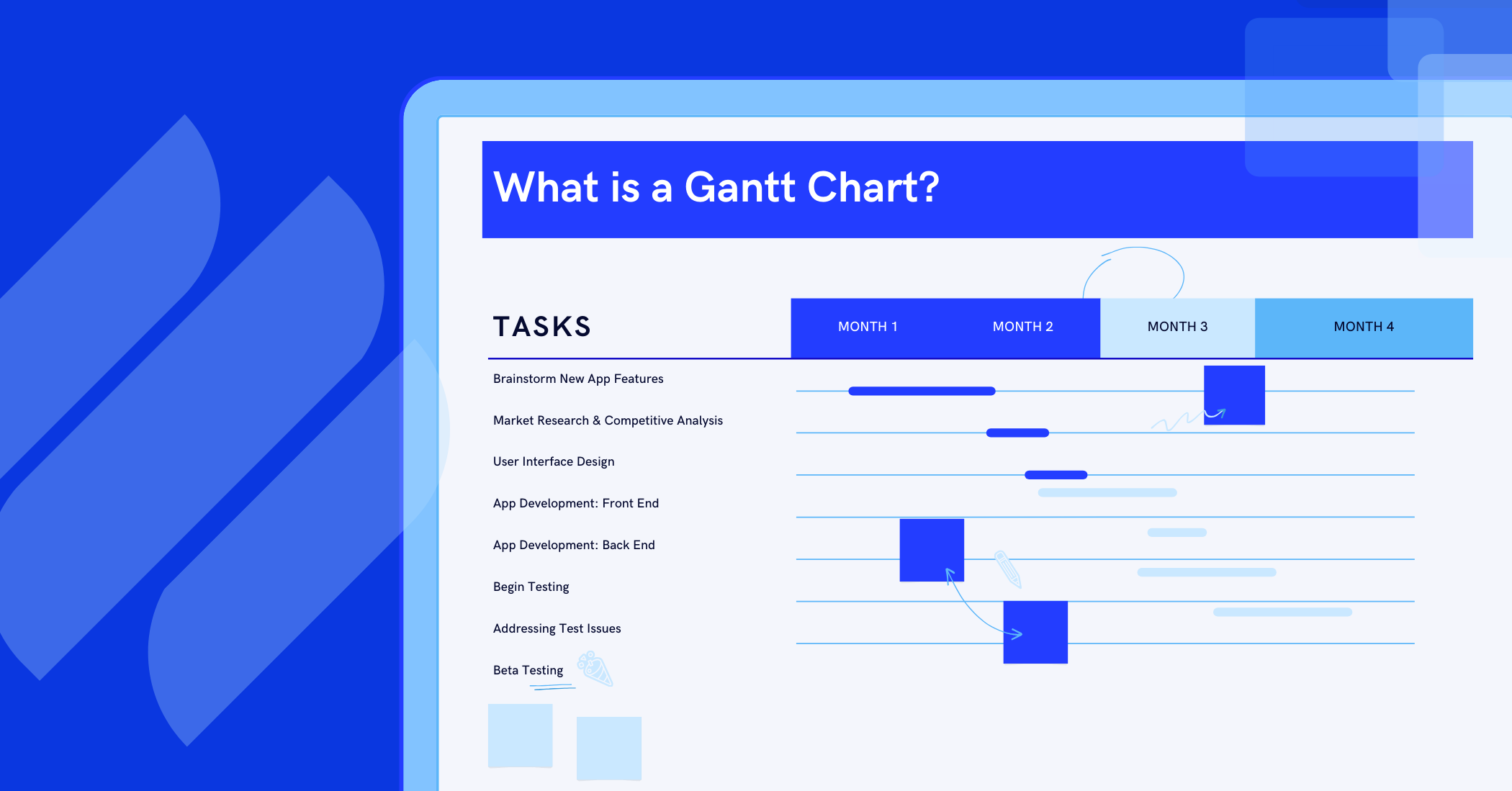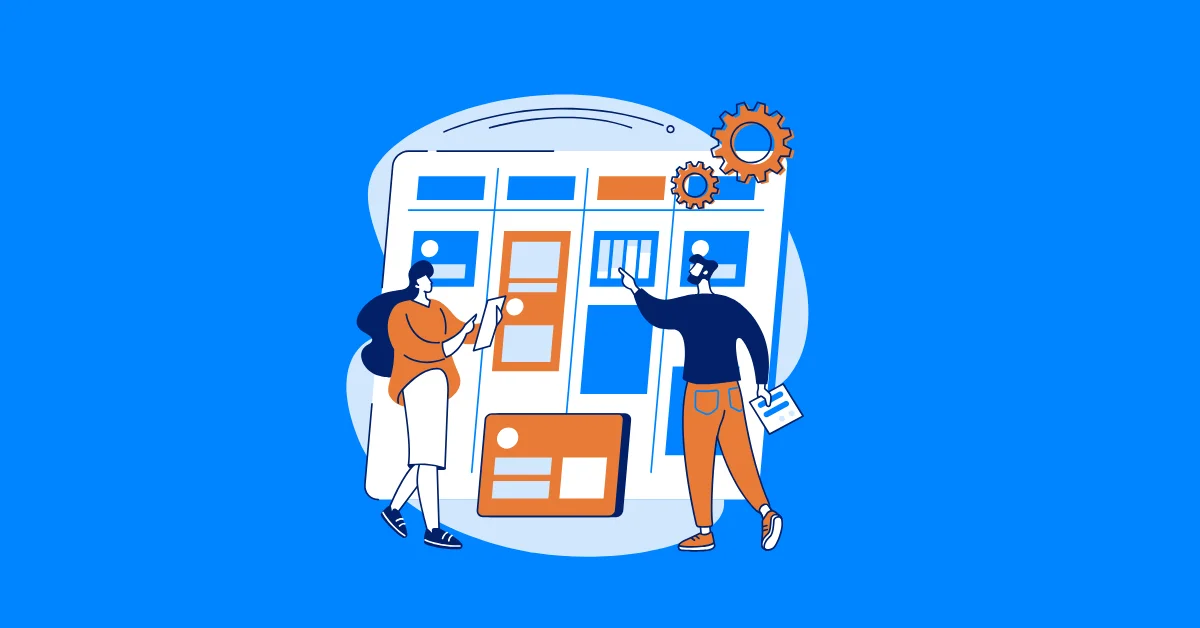AI Project Management: How AI is Revolutionizing the Industry Beyond 2025
Explore how AI Project Management is transforming the industry with automation, predictive analytics, and future trends shaping success beyond 2025.
AI project management is no longer just a buzzword—it’s actively transforming the way we plan, execute, and deliver projects. From automating routine tasks to predicting potential risks, AI is reshaping the entire project management process.
In this post, we’ll dive into what AI project management is all about, explore its benefits, and see how it’s reshaping the field. We’ll also cover its key features, best practices for integrating AI into your projects, and what’s on the horizon for 2025 and beyond.
Whether you’re a project manager or a business leader, understanding AI in project management is key to staying ahead. Let’s get started.
What is AI Project Management?
AI for project management is all about using artificial intelligence to make managing projects easier and more efficient. It helps automate tasks, predict potential issues, and analyze data quickly, so project managers can make smarter decisions faster. With AI, you can streamline processes, manage resources better, and even improve team collaboration.
Unlike traditional project management, which relies heavily on human expertise for tasks like scheduling and risk assessment, AI augments these efforts with data-driven insights and automation.
Key AI Capabilities in Project Management
AI in project management brings several helpful features that make managing projects smoother and more efficient:
- Predictive Analytics – Analyzing past data to forecast potential risks, delays, or bottlenecks, helping project managers stay ahead of issues before they arise.
- Natural Language Processing (NLP) – AI analyzes team communications, like emails or meeting notes, to understand the overall mood or sentiment. It can pick up on concerns or conflicts that may not be obvious, allowing managers to address them sooner.
- Machine Learning – AI learns from past projects and continuously improves strategies. It helps find areas where things can be more efficient, like optimizing resource allocation and improving workflows.
- AI-powered Automation – This handles recurring tasks like scheduling, reporting, and risk tracking, reducing manual workload.
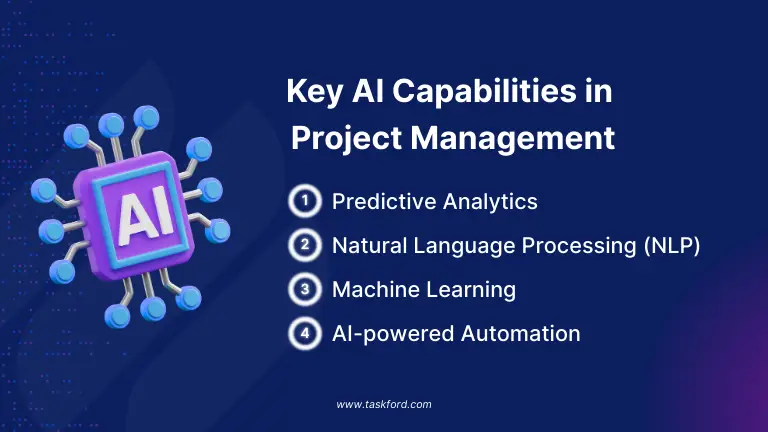
Historically, project management relied on intuition and experience. Now, AI empowers project managers with real-time insights, improving decision-making. AI doesn’t replace project managers—it enhances their ability to focus on strategic leadership rather than administrative tasks.
📊 According to the Project Management Institute (PMI) reports that 81% of project professionals view AI as essential for future success (PMI, 2021).
Benefits of AI in Project Management
AI brings transformative advantages to project management:
- Increased Efficiency: AI automates time-consuming tasks like scheduling, status reporting, and documentation. This frees up project managers to focus on high-value, strategic decisions rather than getting bogged down in administrative work.
- Improved Accuracy and Risk Mitigation: By reducing human error in budgeting, forecasting, and risk analysis, AI ensures more reliable project outcomes. It can analyze past data to spot potential risks early and suggest mitigation strategies, helping project managers stay ahead of problems. According to Gartner reports, organizations that use AI for risk management report a 30% increase in on-time project delivery.
- Scalability for Complex Projects: AI handles vast datasets and complex project structures that would overwhelm traditional manual approaches, ensuring seamless coordination across large teams and multiple project phases.
- Real-Time Insights: 82% of senior executives believe that AI will significantly impact project management over the next five years (PMI). AI provides instant updates and actionable recommendations, allowing project managers to make proactive adjustments rather than react to issues after they arise.
With AI in project management, teams can improve efficiency, reduce risks, scale projects more easily, and make faster, more informed decisions.
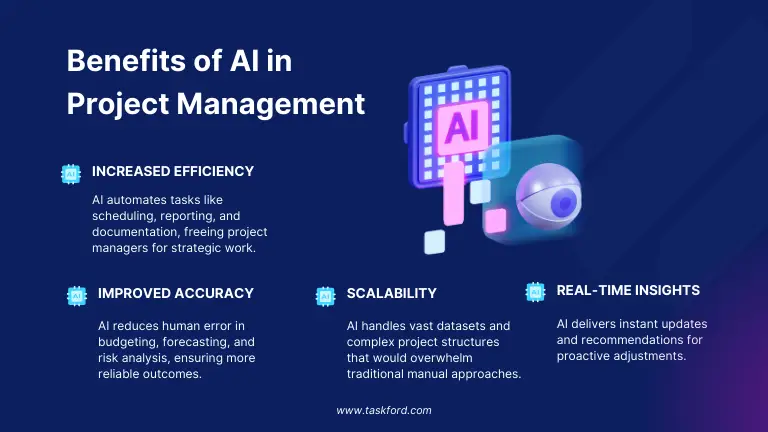
How AI is Transforming Project Management
AI is revolutionizing project management by introducing smarter, faster, and more efficient ways to plan, execute, and deliver projects. Here's how:
1. Automation of Repetitive Tasks
AI automates routine tasks such as scheduling, reporting, and resource allocation, saving project managers time and reducing human error. This allows teams to focus on high-priority activities, improving overall productivity.
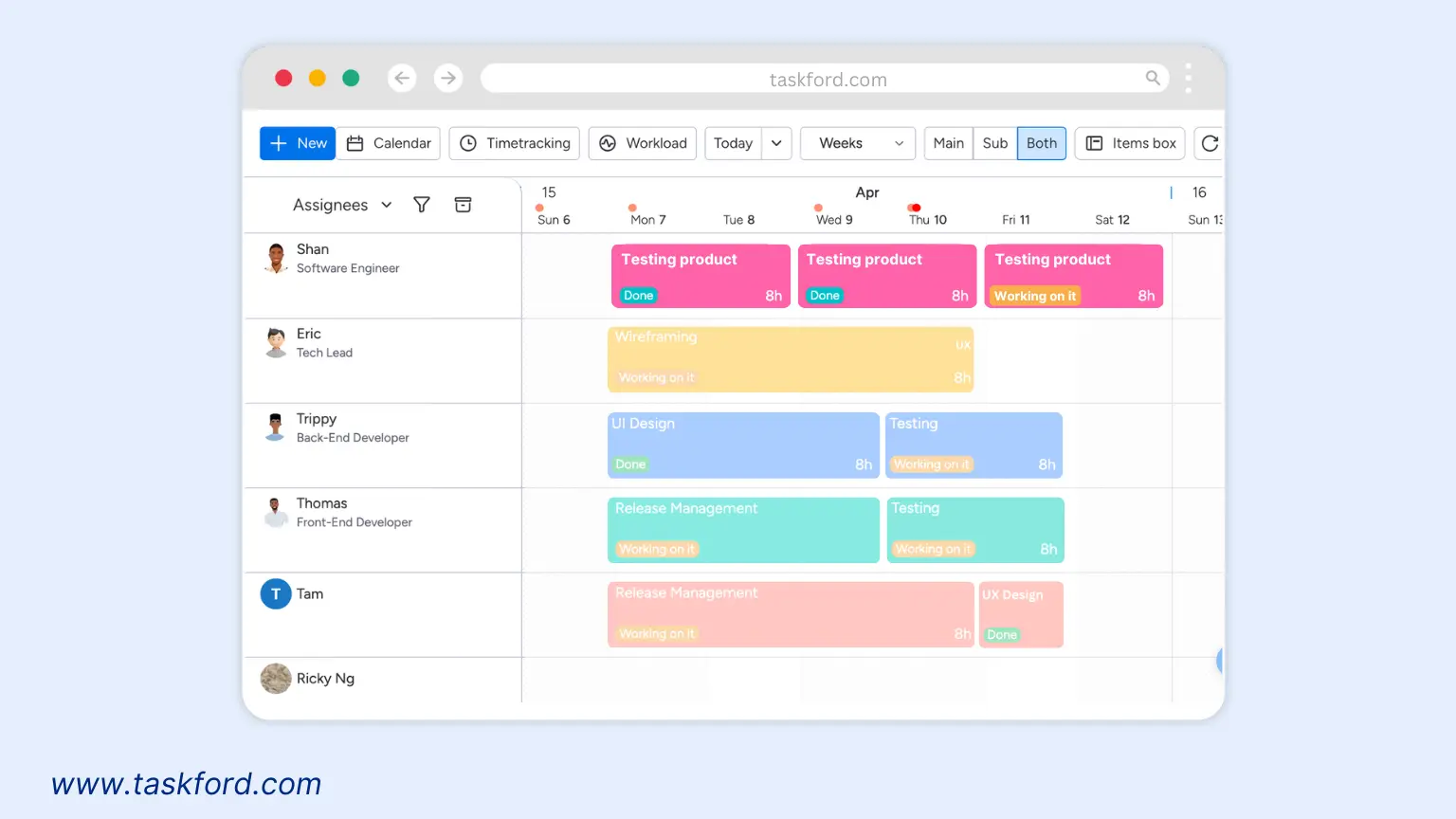
2. Risk Management
AI identifies and analyzes risks early in the project lifecycle by examining patterns from previous projects. By flagging potential challenges ahead of time, AI enables teams to proactively address them, increasing the chances of on-time project delivery.
(Learn more How AI Can Help You Spot Project Risks Early)
3. Optimized Resource Allocation
AI analyzes team members' skills, availability, and past performance to assign the right resources to the right tasks. This helps ensure that projects run smoothly, deadlines are met, and teams aren’t overloaded.
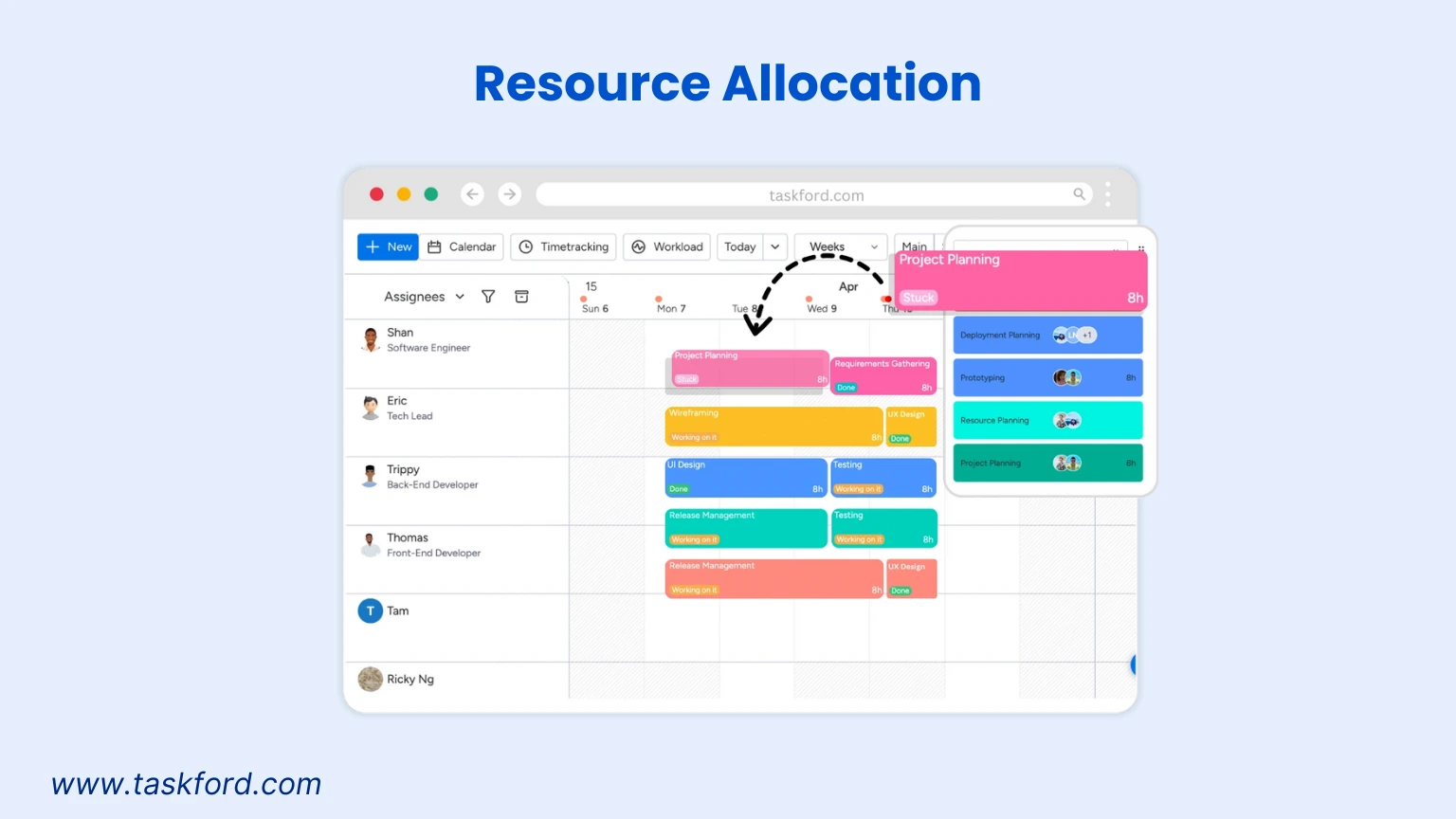
4. Scalability for Complex Projects
AI excels in managing large-scale projects with multiple teams, tasks, and deadlines. It can process vast amounts of data and ensure that all aspects of a project are well-coordinated, even when dealing with complex structures.
5. Continuous Improvement
By learning from past projects, AI continuously refines project strategies and workflows. This means that each project benefits from smarter planning and better execution, driving long-term improvements in project management.
Best Practices for Integrating AI into Project Management
Integrating AI into project management can make planning, execution, and delivery smoother, more accurate, and more efficient. But to get the best results and avoid common mistakes, it’s important to follow some key best practices. Here’s a simple guide to help you make the most of AI in project management!
1. Choose the Right AI tools
Select AI tools that align with your project management—whether it’s predictive analytics for risk assessment, automation for scheduling, or natural language processing for communication tracking. Ensure these tools integrate seamlessly with your existing systems to avoid disruption. The right tools enhance workflows and address your specific challenges without adding complexity.
2. Ensure Data Quality
AI relies heavily on high-quality data to deliver reliable insights. Before integration, audit your project data for accuracy, consistency, and completeness. Organize it into standardized formats (e.g., timelines, budgets, resource logs) that AI can easily process. Poor data quality leads to unreliable outputs, so this step is foundational to success.
3. Train Your Teams
Equip your team with the knowledge to use AI effectively. Provide basic education on how AI works and its role in project management, followed by hands-on training with the chosen tools. A well-trained team is more confident and capable of leveraging AI, leading to faster adoption and better results.
4. Emphasize Human-AI Collaboration
Position AI as a tool to enhance, not replace, human judgment. Use it for data-intensive tasks like forecasting or resource optimization while relying on human expertise for strategic planning and interpersonal decisions. This collaborative approach combines AI’s analytical power with human creativity, leading to better outcomes.
5. Integrate with Existing Workflow
Choose AI solutions that fit seamlessly into your current project management processes, avoiding the need for major overhauls. Smooth integration minimizes disruption and ensures that AI enhances daily operations naturally, accelerating team adoption.
Future Trends and Outlook: Beyond 2025
Looking beyond 2025, the future of AI in project management promises a transformative shift, turning it from a largely administrative discipline into a strategic, innovation-driven field. With automation and predictive analytics evolving, here’s a look at key trends shaping the future through 2035 and beyond.
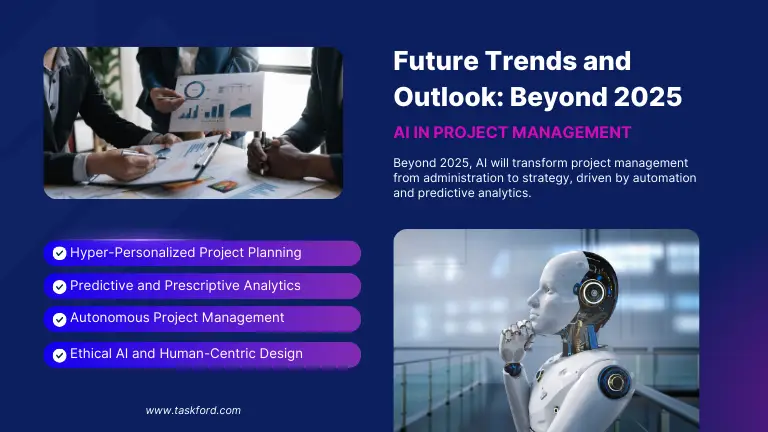
1. Hyper-Personalized Project Planning
By 2027, AI will take project planning to the next level by creating hyper-personalized plans that are tailored to specific industries, team dynamics, and the unique preferences of individual project managers.
AI will analyze vast amounts of historical data, real-time inputs, and market conditions to craft dynamic plans that adapt as the project evolves. Using natural language processing (NLP) and machine learning, AI will understand project goals, stakeholder feedback, and shifting market trends, adjusting the plan in real time to ensure optimal outcomes.
This will enable teams to have a more flexible and responsive approach, adapting to changes quickly and effectively.
2. Predictive and Prescriptive Analytics
In the future, AI will not only predict potential risks and outcomes but will also provide prescriptive solutions to ensure project success. By 2027, AI systems will use advanced predictive analytics to forecast potential challenges—such as delays, budget overruns, or resource shortages—based on historical data and real-time inputs. More importantly, AI will go a step further by offering prescriptive analytics, recommending specific actions to mitigate risks and optimize performance.
For example, AI might suggest reallocating resources, adjusting timelines, or even changing project priorities based on its insights. This combination of predictive and prescriptive analytics will empower project managers to make data-driven decisions that proactively address issues before they arise, leading to smoother and more efficient project execution.
3. Autonomous Project Management
AI is set to take on even more autonomous roles in project management, handling routine tasks and decision-making with minimal human intervention. By 2030, we could see AI systems fully managing entire phases of a project, including procurement, scheduling, resource allocation, and quality assurance. These systems will automatically make adjustments as needed, based on real-time data and pre-set goals, ensuring smooth project execution.
Meanwhile, project managers will shift their focus to strategic oversight, high-level decision-making, and creative problem-solving. This transformation will lead to faster, more efficient project delivery, with AI handling the details while humans guide the big picture.
4. Ethical AI and Human-Centric Design
By 2030, project management software will be equipped with built-in ethical guidelines, ensuring that AI decisions are fair, unbiased, and aligned with the organization’s core values. AI will be designed with transparency in mind, allowing project managers to understand how decisions are made.
While AI will play a larger role in decision-making, human oversight will remain crucial, ensuring that AI serves as a tool to augment, not replace, human judgment. This balance will help ensure that AI-driven solutions respect ethical standards and maintain a human-centered approach to project management.
Conclusion
AI project management is revolutionizing project planning, execution, and monitoring. As AI technology evolves, businesses must embrace AI-driven strategies, upskill their workforce, and balance automation with human oversight.
The future of AI project management is here—is your business ready to adapt?
Making work simpler,
smarter, and more connected
Join our waitlist and be notified first.

Related Blog
Subscribe for Expert Tips
Unlock expert insights and stay ahead with TaskFord. Sign up now to receive valuable tips, strategies, and updates directly in your inbox.


